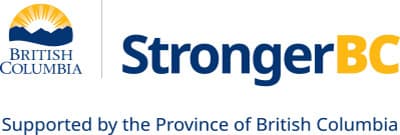Program description
This micro-credential will equip you with the foundational skills, methods and best practices required to use emerging drone and GIS-technology for low-level aerial land survey, data collection and digital mapping.
Drone technology is an emerging skillset in many Earth monitoring fields as it can accurately, quickly, and inexpensively map and survey a diverse range of landscapes. You can use drones to create analysis for forestry, conservation, real estate, construction, mining, emergency management, energy, agriculture and transportation use.
This program will prepare you to process drone-based data using WebODM, an open-source photogrammetry tool, to create orthomosaics, elevation models and 3D visualizations.
Topics covered in the program will include:
- Flight and mission planning, including regulations and controls
- Photogrammetry and structure-from-motion data processing
- GNSS data acquisition for precision mapping
- Cartographic design and visualization techniques
- Ground control surveying, accuracy assessment and spatial analysis
This program is certified by CIFAL Victoria. CIFAL provides certification for training courses that build the capabilities of individuals and communities towards the achievement of the UN Sustainable Development Goals. Participants who successfully complete this course are eligible to receive a Certificate of Completion co-signed by UNITAR (United Nations Institute for Training and Research) and CIFAL Victoria.
Program features
The courses in this program are fully asynchronous to support your learning and help you manage a balanced lifestyle. The courses include a virtual field component that provides insight into drone mapping field operations.
The University of Victoria is consistently ranked among the top Canadian comprehensive universities and is recognized for preparing students for careers in a wide range of disciplines. Upon successful completion of this program, you will receive a micro-certificate.
This two-course program is designed to provide you with the knowledge and tools necessary to achieve your professional goals in just 12 weeks of course studies.
Our instructors are dedicated professionals with years of applied experience. They’re committed and passionate about helping you develop knowledge and skills to realize your full potential.

Through the StrongerBC future skills grant, students may be eligible to receive funding for this program. View details and eligibility






